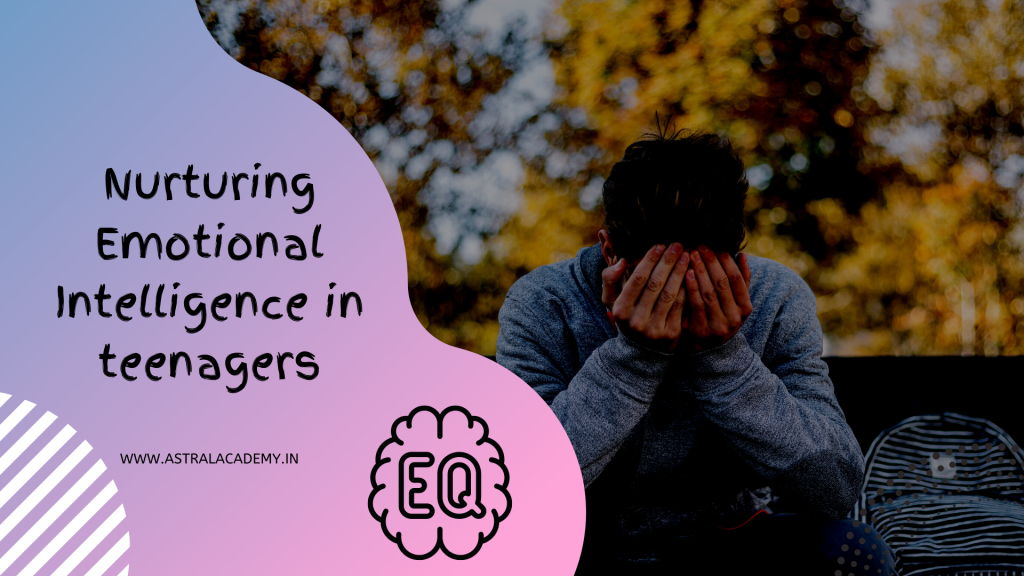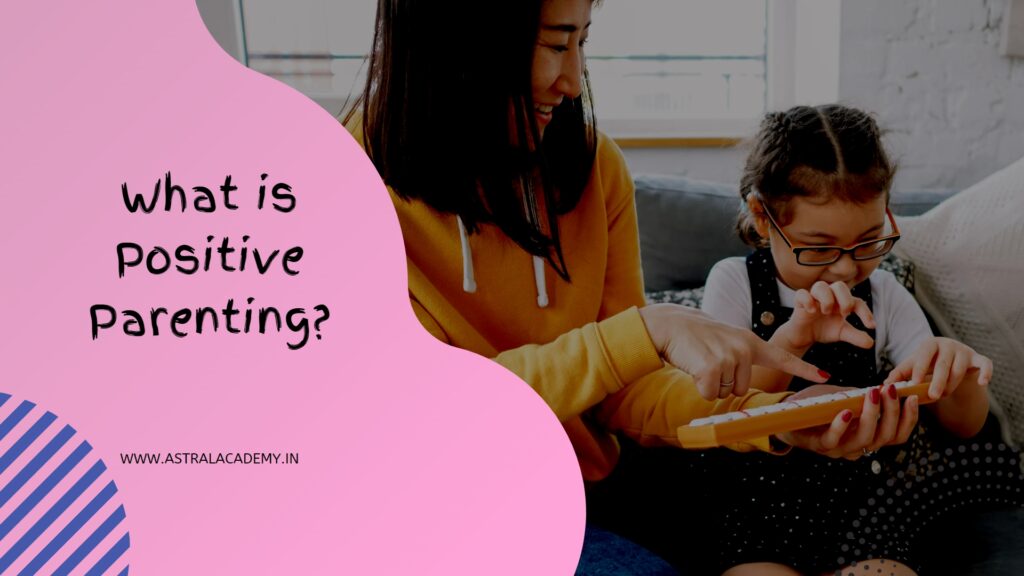What is emotional intelligence?
How can we inculcate emotional intelligence in students?
Emotional intelligence (EI) is a person’s ability to recognise, understand, and manage their emotions, as well as their ability to recognise and understand the emotions of others.
Being emotionally intelligent in today’s world means having the ability to:
1. Recognise and comprehend one’s own emotions: This involves being aware of one’s own emotions, understanding their triggers and icks, and being able to express them appropriately.
2. Having healthy emotional patterns: having healthy emotional patterns refers to managing one’s own emotions in a healthy and productive way rather than being overwhelmed by them at the slightest inconvenience.
3. Recognise and understand the sentiments of others: Emotionally intelligent people are able to read other people’s emotions, understand their perspectives, and empathize with them.
4. Communicate effectively: communicating effectively means being able to express oneself clearly as well as being able to listen actively and provide appropriate responses.
5. Conflict resolution: This refers to a person’s ability to navigate conflicts and disagreements in a productive and constructive manner by taking into account one’s own emotions as well as the emotions of others involved.
In the modern world, emotional intelligence is the ability to navigate complicated social interactions and relationships, communicate clearly, and settle disputes amicably—all while being conscious of, in control of, and understanding one’s own emotions and those of others.
According to research, adolescents with higher levels of emotional intelligence typically have better mental health, including lower levels of depression and anxiety. They also frequently exhibit stronger social abilities, greater empathy, and greater resilience in the face of hardship. Teenagers must cultivate emotional intelligence because it will help them control their emotions and create lasting, healthy relationships.
Here are some ways that parents and teachers can inculcate emotional intelligence in teens:
1. Modeling Emotionally Healthy Expression :
Leading by example is a key strategy for parents and educators to encourage children to express their emotions in healthy ways. Teaching kids how to recognise and express their emotions in a positive way is key to healthy emotional expression. This may entail exhibiting traits like empathy, active listening, and effective communication. For instance, if a parent or teacher is angry, they can serve as an example of how to express anger in a respectful and courteous manner. This could entail pausing to notice and acknowledge their emotions, finding a calm place to unwind, and then confronting the situation with a clear and logical mind. Because children learn most things by observing, by modeling healthy emotional expression, parents and teachers can support kids in learning how to manage their emotions effectively, resolve conflicts peacefully, and practice self-control at all times.
2. Promote self-reflection:
Self-reflection is a crucial component of supporting the emotional development of teenagers. Teenagers can gain a better awareness of themselves and the world around them by reflecting on their own feelings and the emotions of others. As adolescents start to recognise and value the emotions and experiences of those around them, this process can also help them become more empathic.It can be beneficial to give teenagers the chance to try out contemplative, quiet hobbies like writing, meditation, or mindfulness exercises in order to promote self-reflection.They should be encouraged to express their feelings honestly and openly, as well as to listen intently and without interruption to the experiences of others.It’s crucial to remember that self-reflection is a unique and ongoing process, and it could take some time for teenagers to feel at ease discussing their emotions in this way. You may aid these developing minds in acquiring the skills necessary to better comprehend and grasp their emotions and create wholesome, fulfilling connections with both other people and themselves by being patient, supportive, and providing a safe space.
3. Methods for controlling emotions:
Adolescents experience a flurry of emotions, so it’s important to teach them important life skills like emotional control.Adolescents’ emotional intelligence is still growing; therefore, they could find it difficult to handle how intense their emotions are. Thus, it is essential to give kids the opportunity to practise emotional regulation strategies so that they can learn to manage their emotions in a healthy and useful way. Deep breathing exercises are an efficient technique to support emotional regulation. Deep breathing exercises provide individuals with the tools to quiet their racing minds and become more conscious of their bodily feelings, which promotes calmness and relaxation. Similarly, keeping a journal can be a useful tool for teens to process their emotions. They can better understand their emotional state and pinpoint triggers that may be upsetting them by outlining their thoughts and feelings.. It is important to note that the process of learning emotional regulation is not an overnight fix, and it may take time for teens to master these techniques. Therefore, it is essential to provide consistent opportunities for them to practise and reinforce these skills to develop their emotional resilience. By doing so, teens can learn to manage their emotions, maintain healthy relationships, and make better decisions for their overall well-being.
4. Build a safe environment:
Role modeling in a safe and open environment is an effective method for fostering emotional intelligence in children. Parents and educators can have a positive impact on children’s emotional development by modeling appropriate emotional behaviors and displaying sensitivity and compassion. Through you, children can learn how to control their emotions, improve their communication abilities, and form enduring bonds with others. Children are certain to internalize these skills and use them in their own lives if parents or guardians consistently and purposefully set patterns of good emotional behaviour. Children can learn to control their emotions and express themselves in a positive way rather than lash out when their parents, for instance, show empathy and understanding towards them when they are unhappy or frustrated in their homes.Similar to this, educators can foster a secure and encouraging learning atmosphere where pupils feel valued, listened to, and respected by setting a good example for emotional wellness in the classroom.
5. Be patient and just listen:
Active listening is a vital skill that parents and other adults can employ to promote emotional intelligence in teenagers. Caretakers can foster a safe and encouraging environment where teens feel valued and heard by encouraging young children to share their feelings and actively listening to what they have to say. In order to actively listen, one must pay close attention to both verbal and non-verbal signs, including voice articulation, body language, and facial expressions. Additionally, it entails reflecting back what you heard to the teenagers you spoke with and asking open-ended questions to compel them to express their feelings and views in greater detail. Parents and other adults who care for children can support teenagers in developing their emotional intelligence, communication abilities, and interpersonal relationships by practicing active listening.
6. Developing Self-Awareness :
Teenagers’ emotional intelligence can be improved by helping them become more self-aware. You may provide them with the tools they need to effectively control their emotions by helping them identify their own feelings and the factors that cause them. The encouragement of teens to partake in activities like writing, meditation, or mindfulness exercises is one way to cultivate self-awareness. Through these activities, they can learn to objectively observe their thoughts and feelings and develop their ability to recognise and control their emotions. Teenagers can ultimately form healthier relationships and increase their self-esteem and confidence by becoming more self-aware.
7.Developing Empathy:
A key component of emotional intelligence is empathy development, especially for teenagers who are exposed to complicated social dynamics on a daily basis. Teenagers may acquire skills in compassion and strengthen their bonds with those around them by empathising with and sharing the experiences of others. Teenagers need to be urged to look beyond their own experiences and consider those of others in order to develop empathy. This can entail paying attention to what others are saying, observing nonverbal signs like body language, and making an effort to decipher the emotions that are conveyed through someone else’s words or actions.Ultimately, teaching empathy is about helping them develop a deeper understanding of the spectrum of emotions experienced by humans. By instilling a sense of empathy and compassion, we can help young people build stronger, more fulfilling relationships and become more successful and resilient adults.
8. Interpersonal interactions:
Promoting constructive relationships is essential to assisting teenagers in becoming well-rounded individuals with thriving social lives. We can assist teenagers in acquiring social skills and sound communication practises that will benefit them throughout their lives by promoting positive interpersonal relationships.Teaching teens to respect boundaries is an essential part of promoting healthy relationships. This entails instructing them in the recognition and observance of the physical and emotional boundaries of others as well as in the effective and straightforward expression of their own boundaries. Youngsters are better able to develop trusting relationships with others and stay away from harmful behaviours like bullying and harassment when they learn to respect boundaries. Teenagers can express their thoughts and feelings in a healthy and constructive way by developing outstanding communication abilities. This includes instructing kids in active listening, questioning others, and clearly and politely expressing themselves. Teenagers can also resolve disagreements, establish trust, and preserve positive connections with their peers when they learn to communicate properly.


